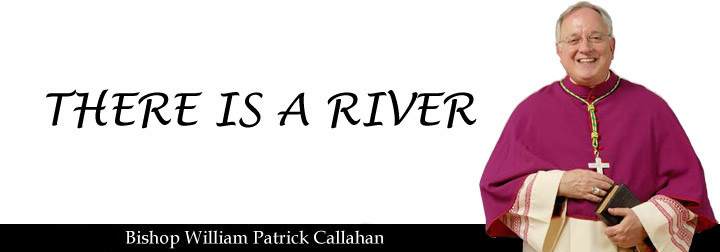We stand at the mid-point of Advent—Gaudete Sunday. “Rose color” vestments of this Sunday remind us that the liturgical season of Advent is nearly completed and we are drawing near to the celebration of Christmas. But let’s not move too quickly away from Advent. While Advent is a short season and, unfortunately, cluttered with the secular pandering toward “the holidays,” Advent is most significant for us as a people who wait. We wait beyond these four weeks—we’ve waited for two thousand years—we expect to wait as long as it takes.
Advent, the spiritual writers and teachers remind us, is a great season of preparation for the coming of Christ. St. Bernard of Clairvaux preached about the three comings of Christ in his Advent homily. His reflection is, of course, one of the mainstays of Advent spiritual reading, and offers us a bit of promise in these days. The mysterious and mystical ways of God are always unknown to us and surprise us when revealed to our consciousness. God’s ways are not our ways, so it is necessary for us to ponder—as the Blessed Mother did—to ponder them in our hearts.
The first coming, of course, intimately involves the Blessed Mother. She bears in her body the Second Person of the Blessed Trinity, Jesus Christ. Mother Mary provides His human body through the great mystery of the Incarnation. (We have just celebrated her Immaculate Conception and today we honor her under the title of Our Lady of Guadalupe—patroness of America and Mother of the Unborn.)
That first coming—the Incarnation—is the essence of our Christmas celebration. The Word made Flesh is visible for all the world, all the ages, and all human history to see, study, evaluate, and emulate.
The third coming will likewise be a visible encounter. Jesus will come again at the end of time as the judge of all creation. It is He who has redeemed us and it is He who will separate the good from the evil, presenting the good and all redeemed creation to His Father, and pronouncing in turn, the sentence of damnation for those who have chosen it.
These two comings of Christ are clear and visible. There will be no mistaking His presence. The second coming of the three, as described by St. Bernard, is a bit more mystical and faith-filled. The second coming is the presence of Christ who is “with us,” the One who is with us “until the end of time.” (Mt. 28:20)
The spiritual presence of the Risen Christ in our midst, especially in the Most Blessed Sacrament, is certainly a mystery and a reality that requires our daily attention. This “second coming” reveals Jesus as the Companion along the journey between two points: the first, His coming as the Savior in our flesh at Christmas; the second, His coming again in glory at the end of time.
The three comings of Christ focus our attention on the life of grace and the sublime attentiveness of God for His creation. St. Paul reminds us that we walk by faith and not by sight. (2 Cor. 5:7) The gift of grace illuminates our hearts and souls especially concerning our care and service for our brothers and sisters (Mt. 25: 31ff.) thus guiding our way along the journey of life. We do not walk alone; Jesus is with us. His Church provides the sacramental and spiritual structure that gives meaning to the daily aspects of human life.
During the season of Advent, all channels of human knowledge, understanding, emotion and sentiment about God come to a glorious nexus that allows for the mind and heart to contemplate all three comings of Christ in one single liturgical season. The omnipresence of God can be savored and explored so as to build up our genuine awareness of God’s creation and continued sanctification of the human race.
We say, with Scripture, “Come, Lord, Jesus!” We say this with certainty of faith, knowing that He has come in history. We say this with certainty of faith, knowing that He is with us, in and through His Church, inspiring true faith, hope and love. We say this with certainty of faith, knowing that Christ will come again in glory at the end of time.
“The Spirit and the bride say, ‘Come.’ And let everyone who hears say, ‘Come.’ The one who testifies to these things says, ‘Surely I am coming soon.’ Amen. Come, Lord Jesus!” (Rev. 22: 17, 20)
He will come at Sunday Mass—hope to see you there!
